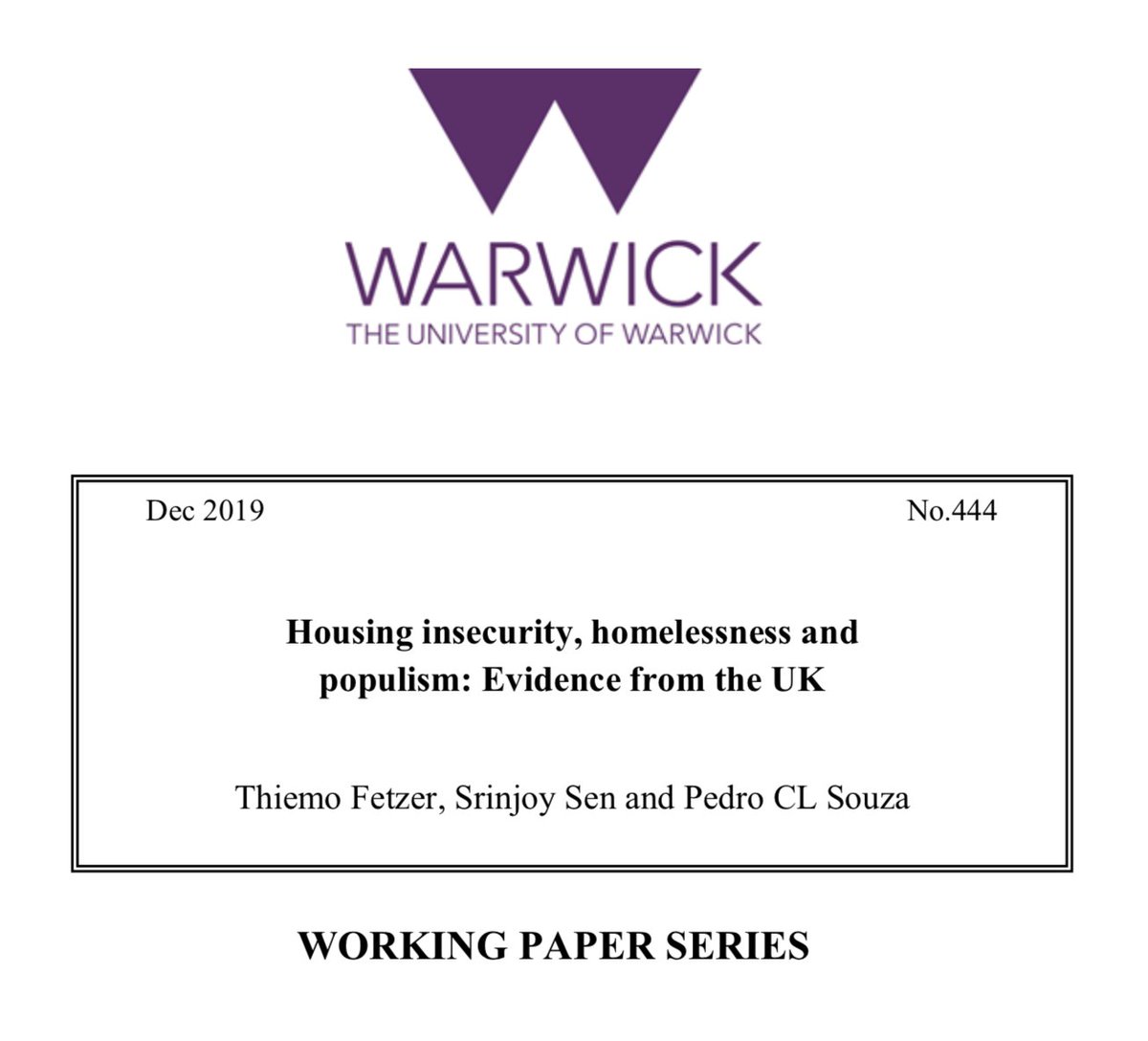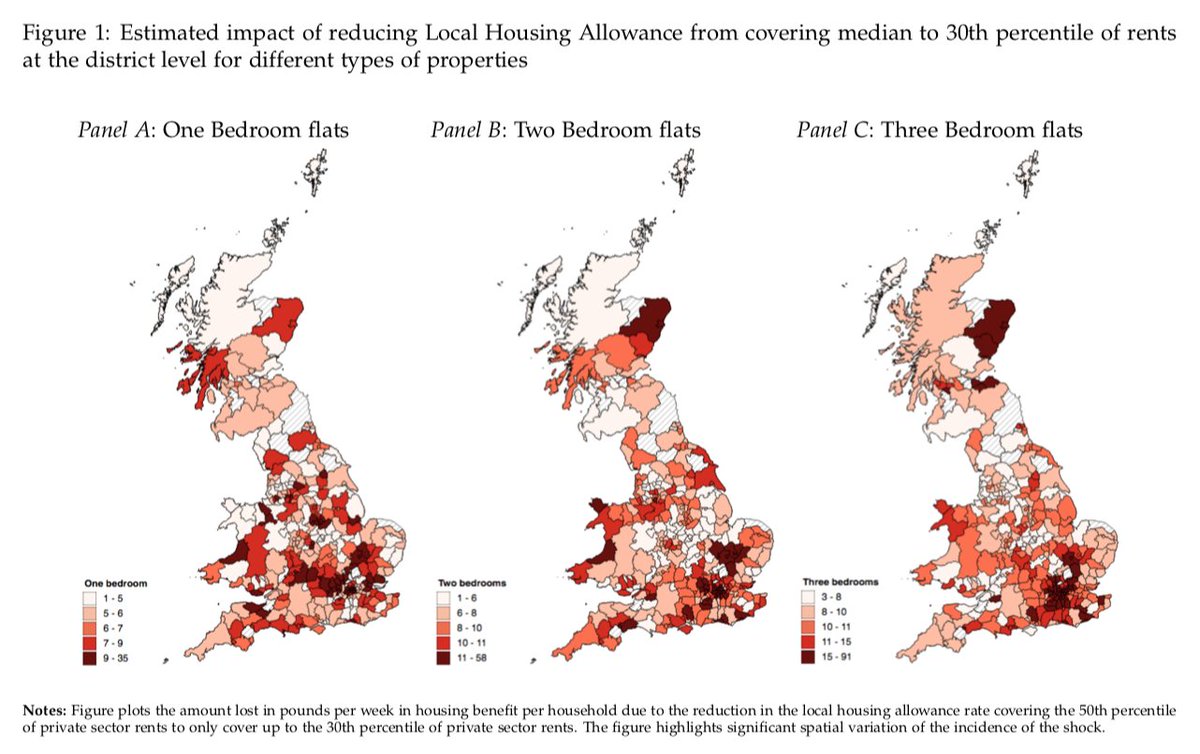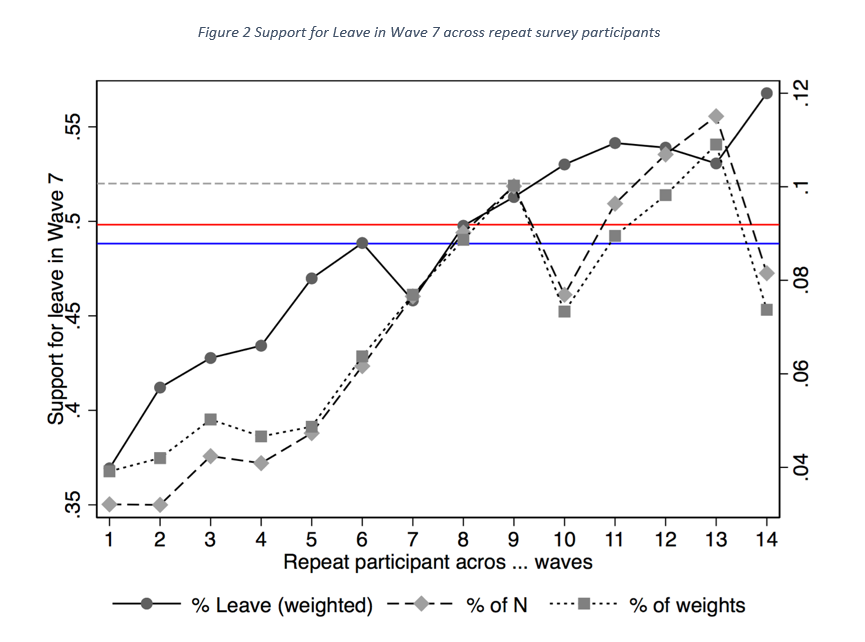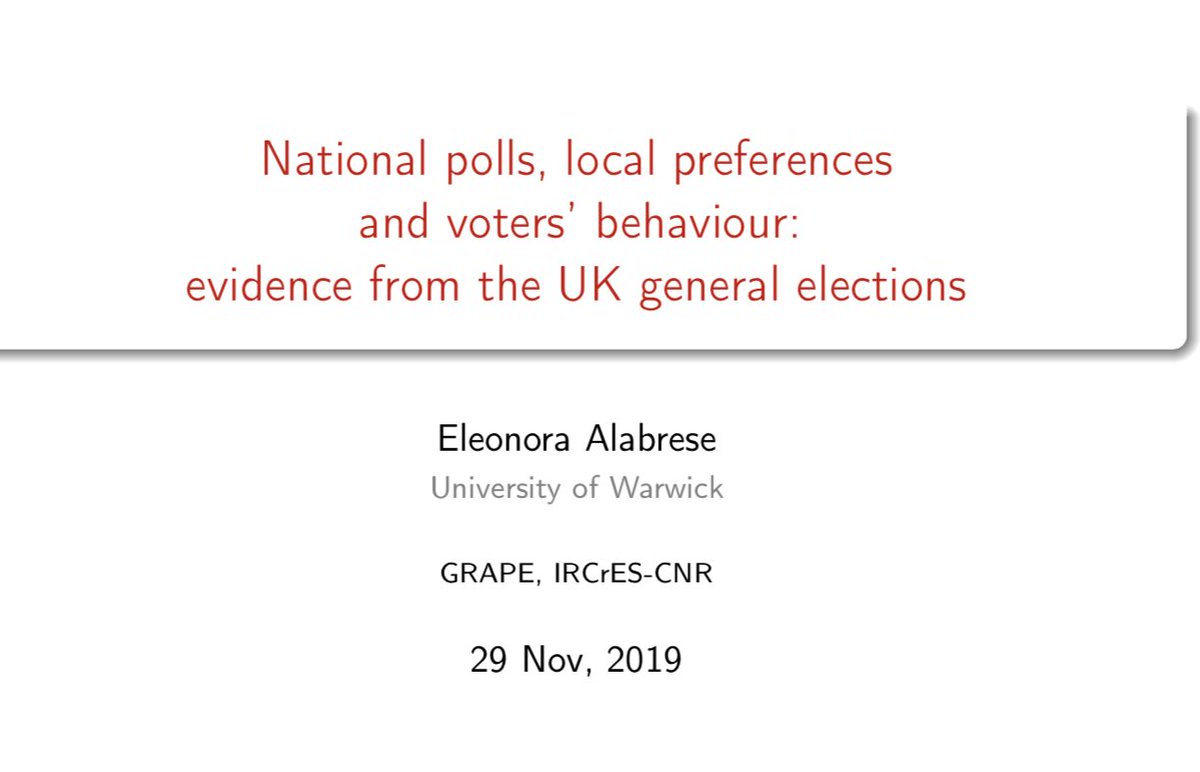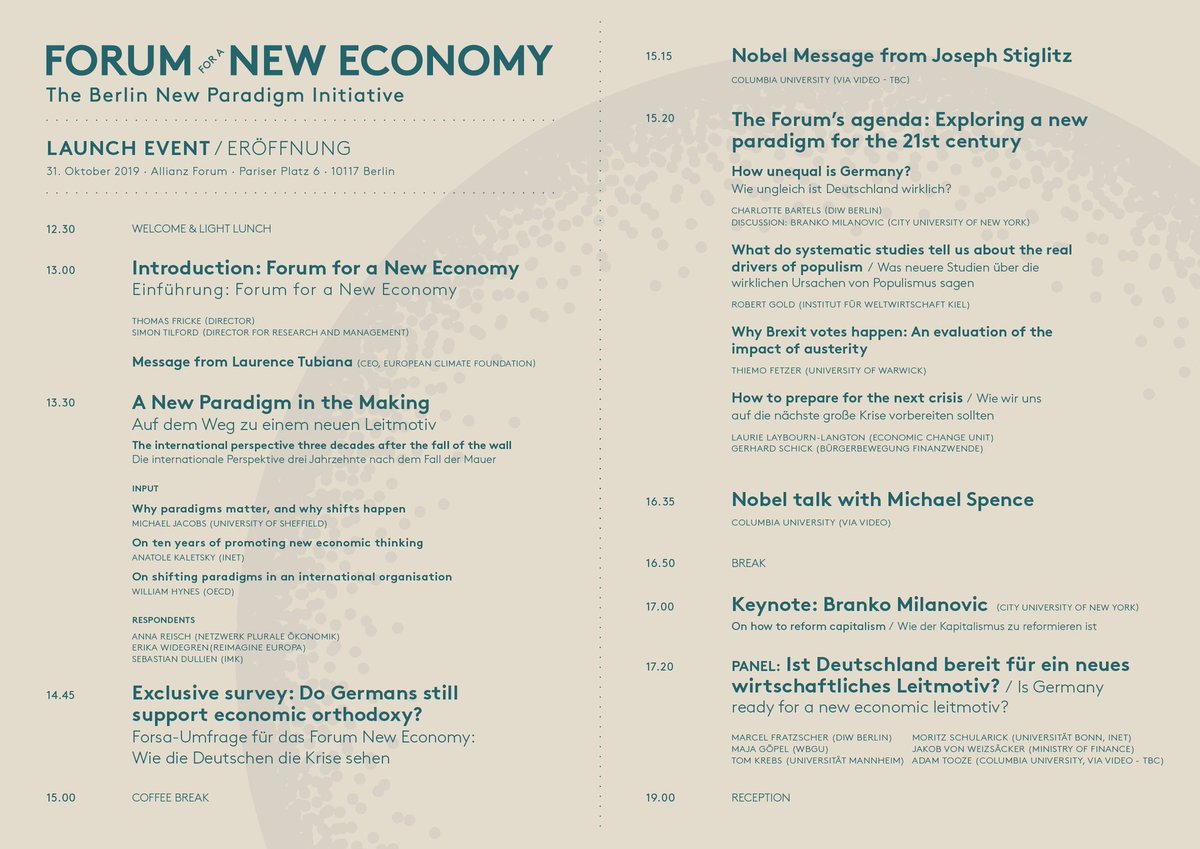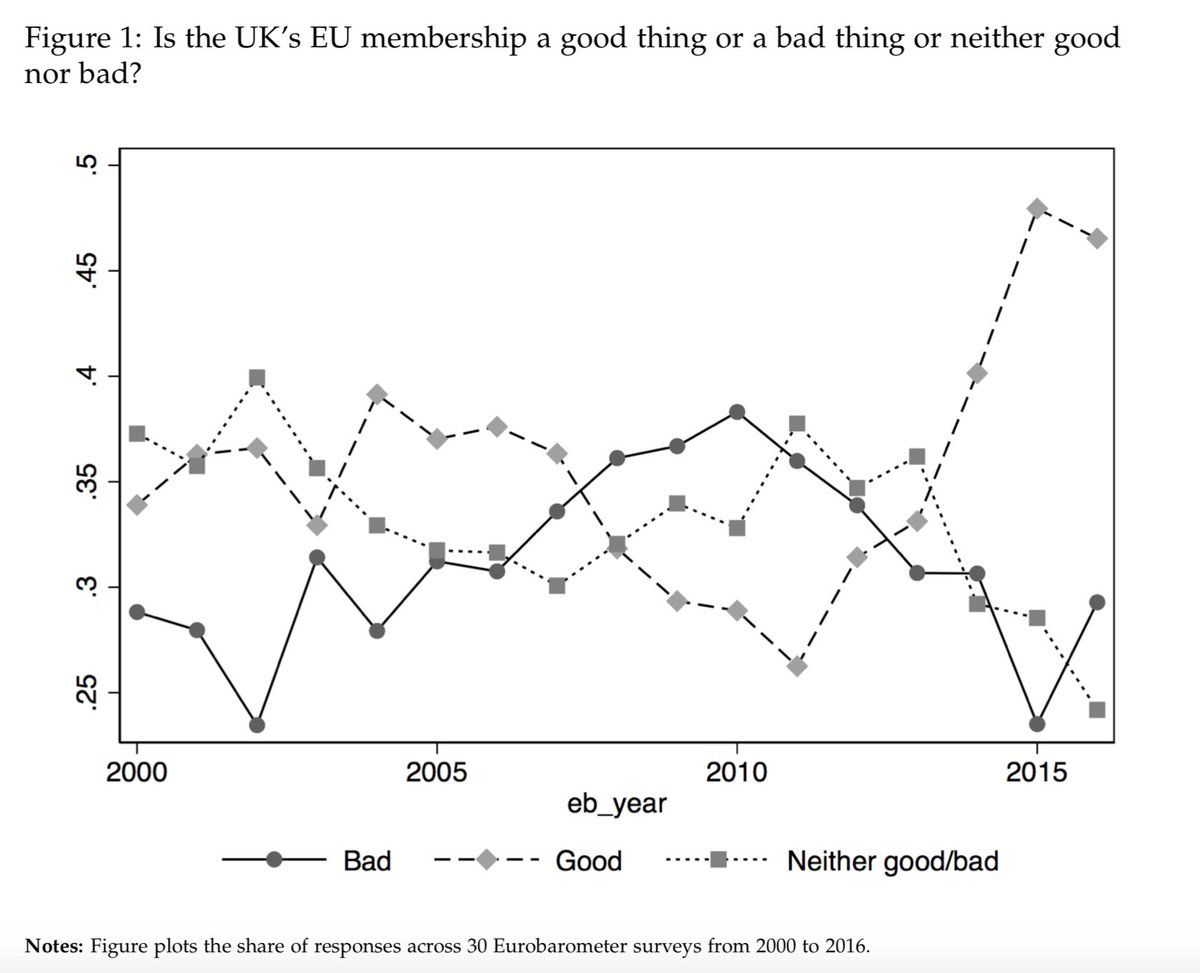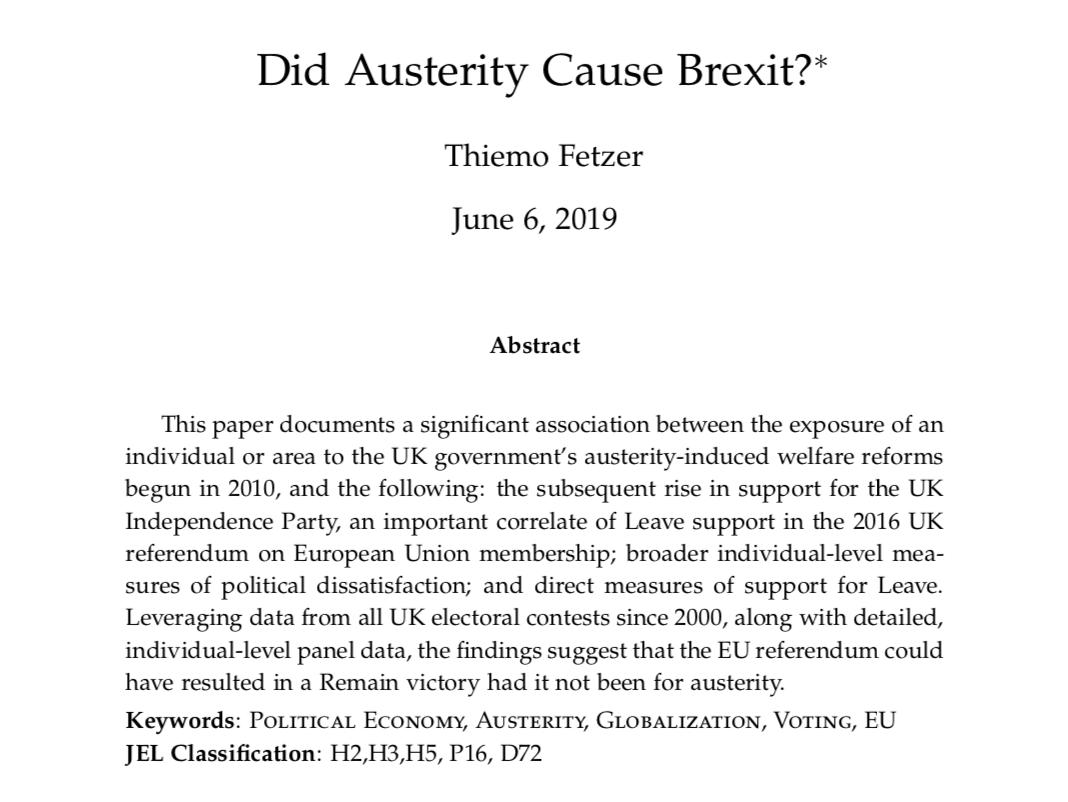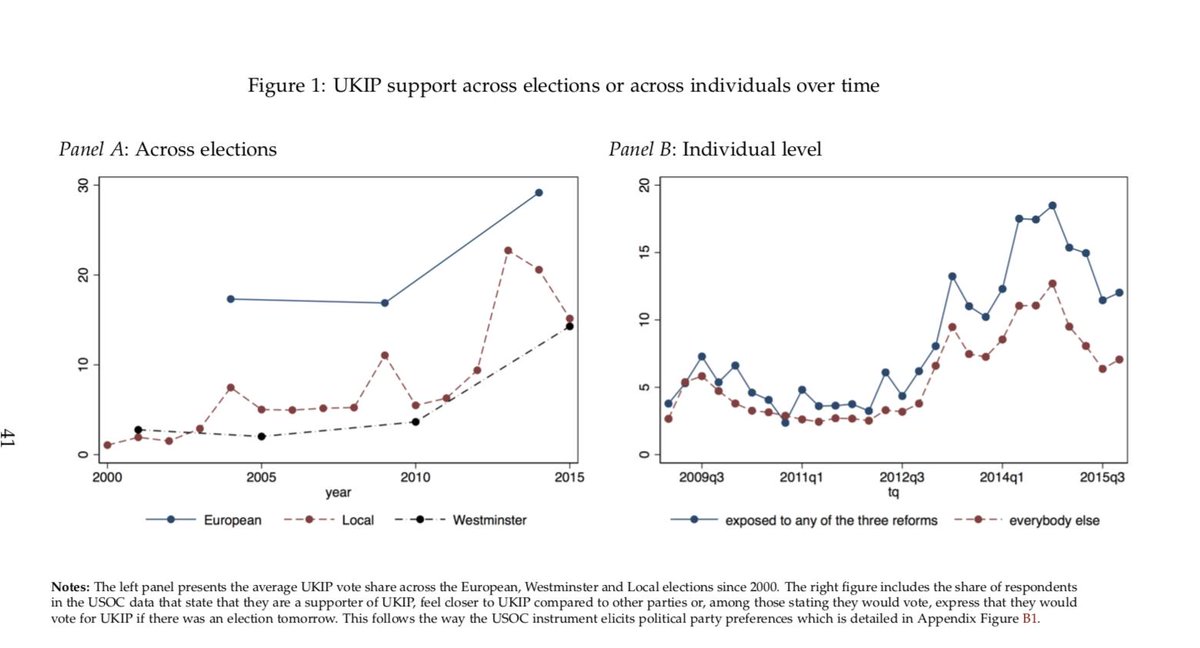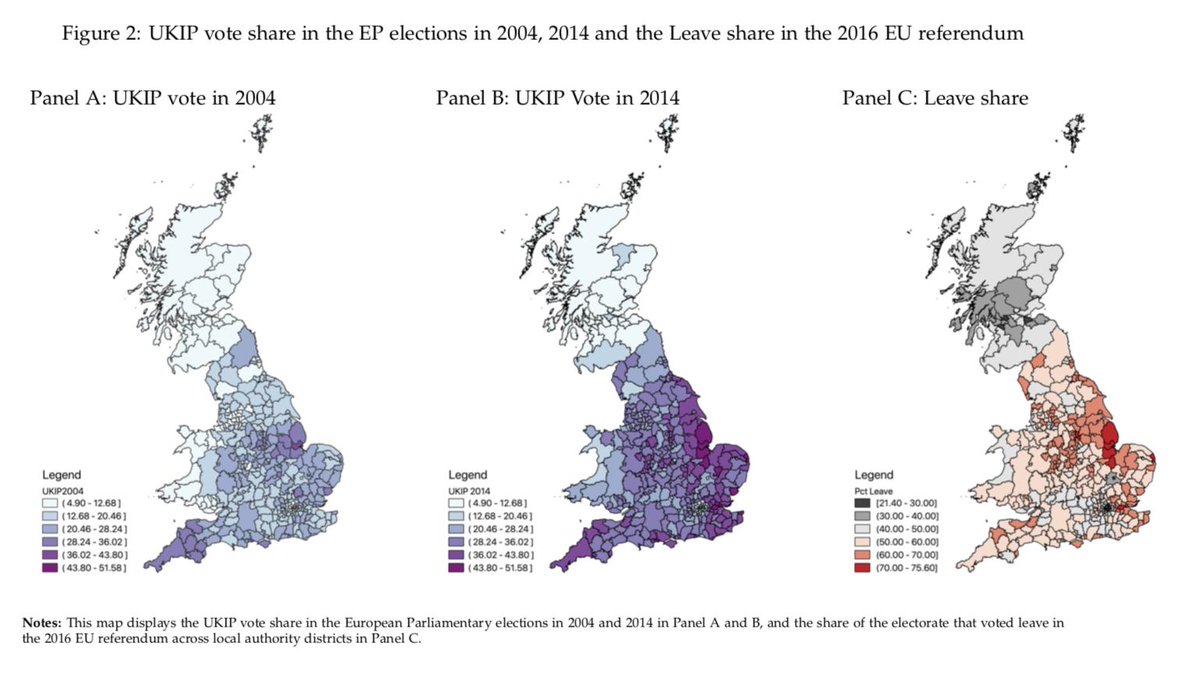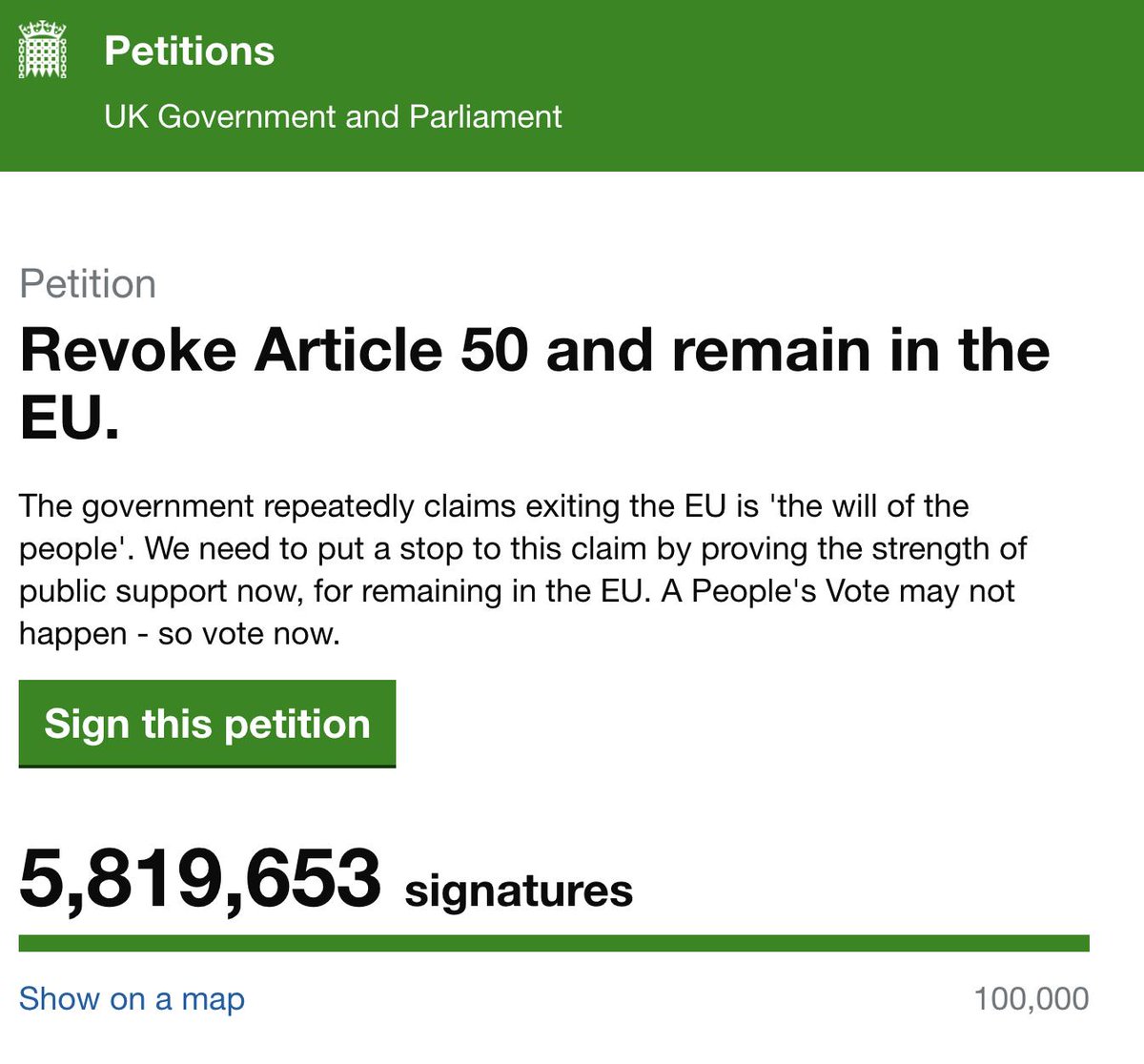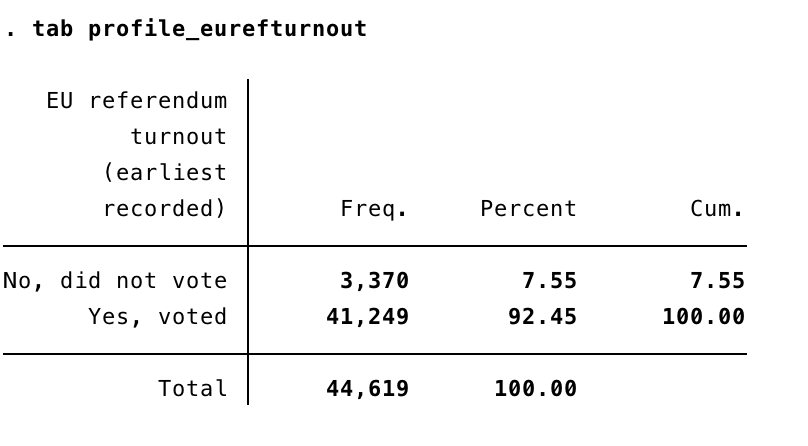
Today I m sharing another paper on unintended consequences of a UK policy which makes me cringe at how my tax money is spent all the while debating #FreeSchoolMeals "Subsidizing the spread of COVID-19: Evidence from the UK’s #EOHO scheme". ➡️ bit.ly/3ed5Slo a thread🧵⬇️ 
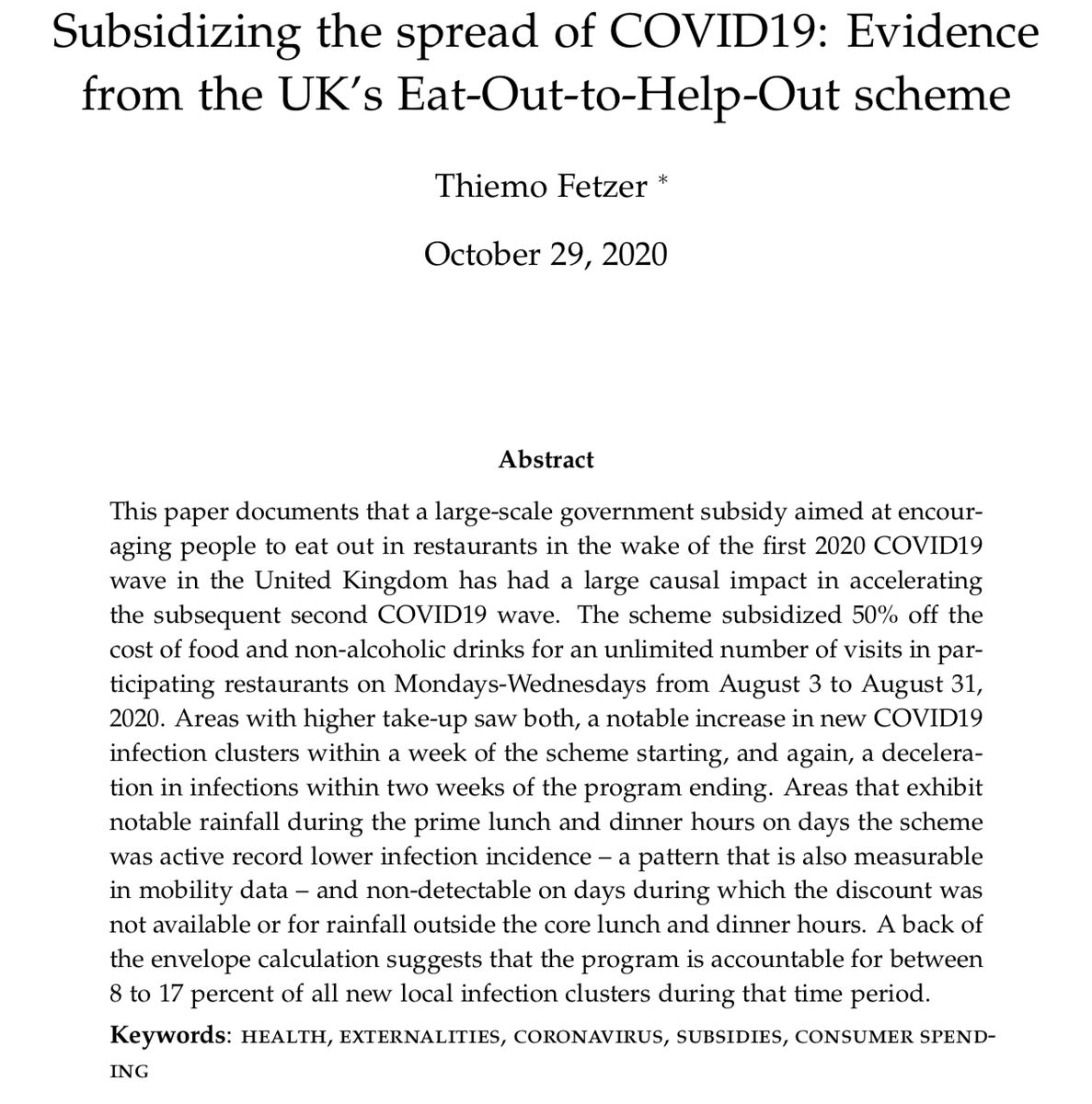
The EOHO scheme was conceived to help the hard-hit restaurant businesses in the UK in the wake of 1st #COVID19 wave. The scheme cut the cost of meals & non-alcoholic drinks by up to 50% across tens of thousands of participating restaurants in the UK from 3 to 31 August 2020. 1... 

The research leverages data from #HMRC’s own #EOHO restaurant finder app which was the go-to platform for people searching for EOHO restaurants in their neighbourhood, together with weekly data on new #COVID-19 infections measured at the granular MSOA level (5-10k residents) 2... 

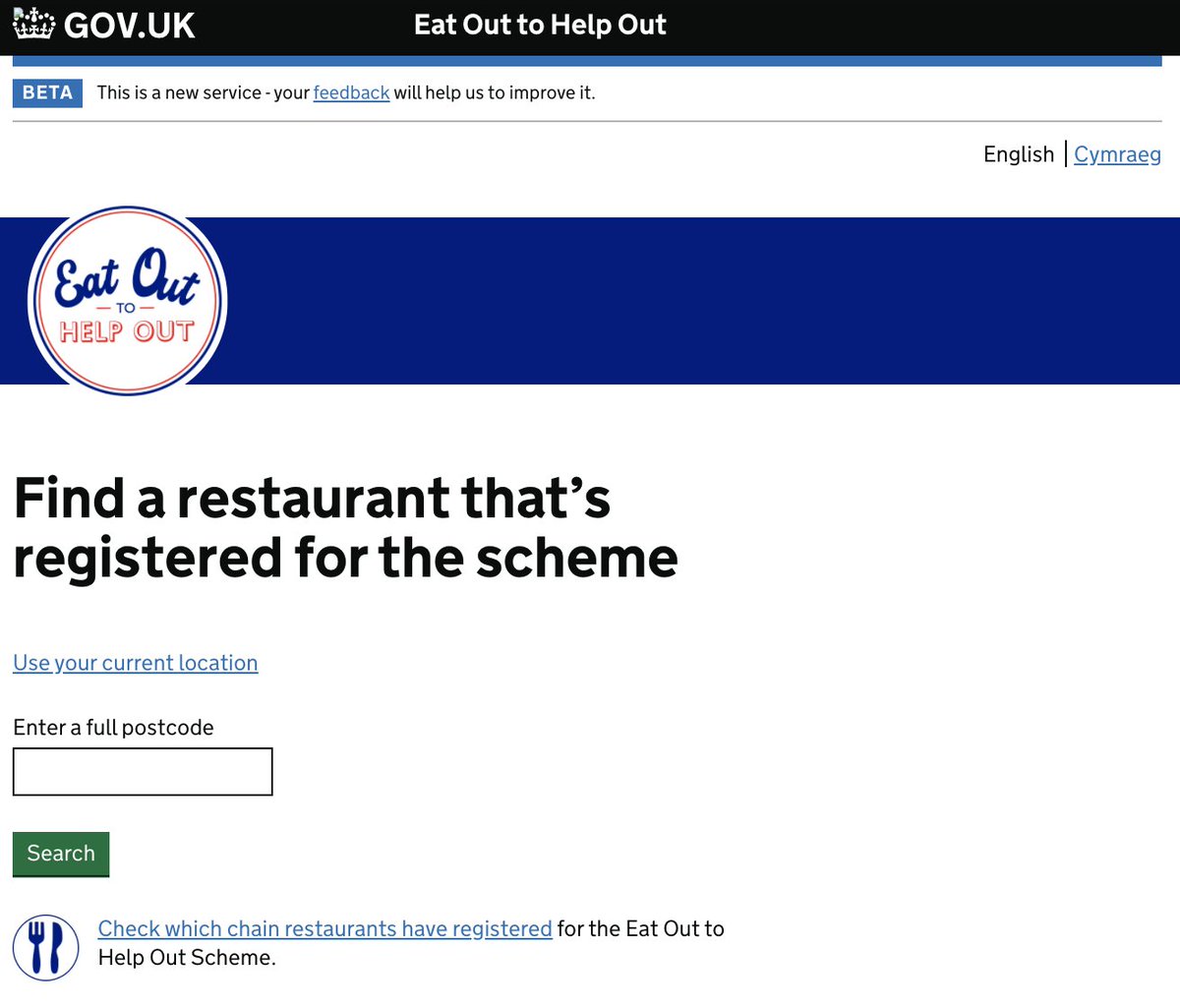
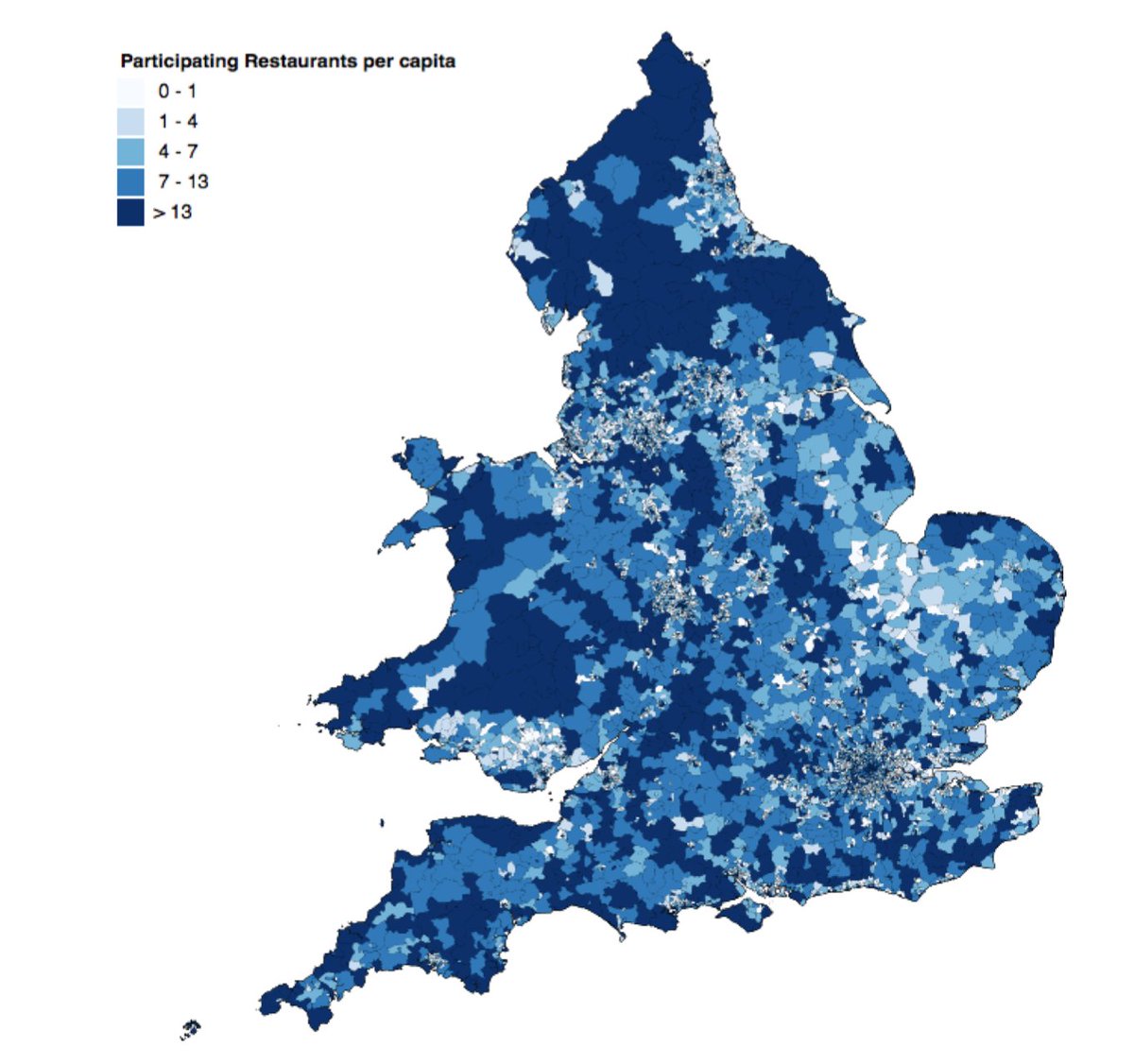
#EOHO did cause people eating out...this fig from #Opentable shows how people flocked to restaurants on Mon-Wed when the discount was available. YoY visits increased by btw 10-200%. Note #EOHO it likely shifted dining patterns from Fri-Sun (black) to earlier in the week. 3... 
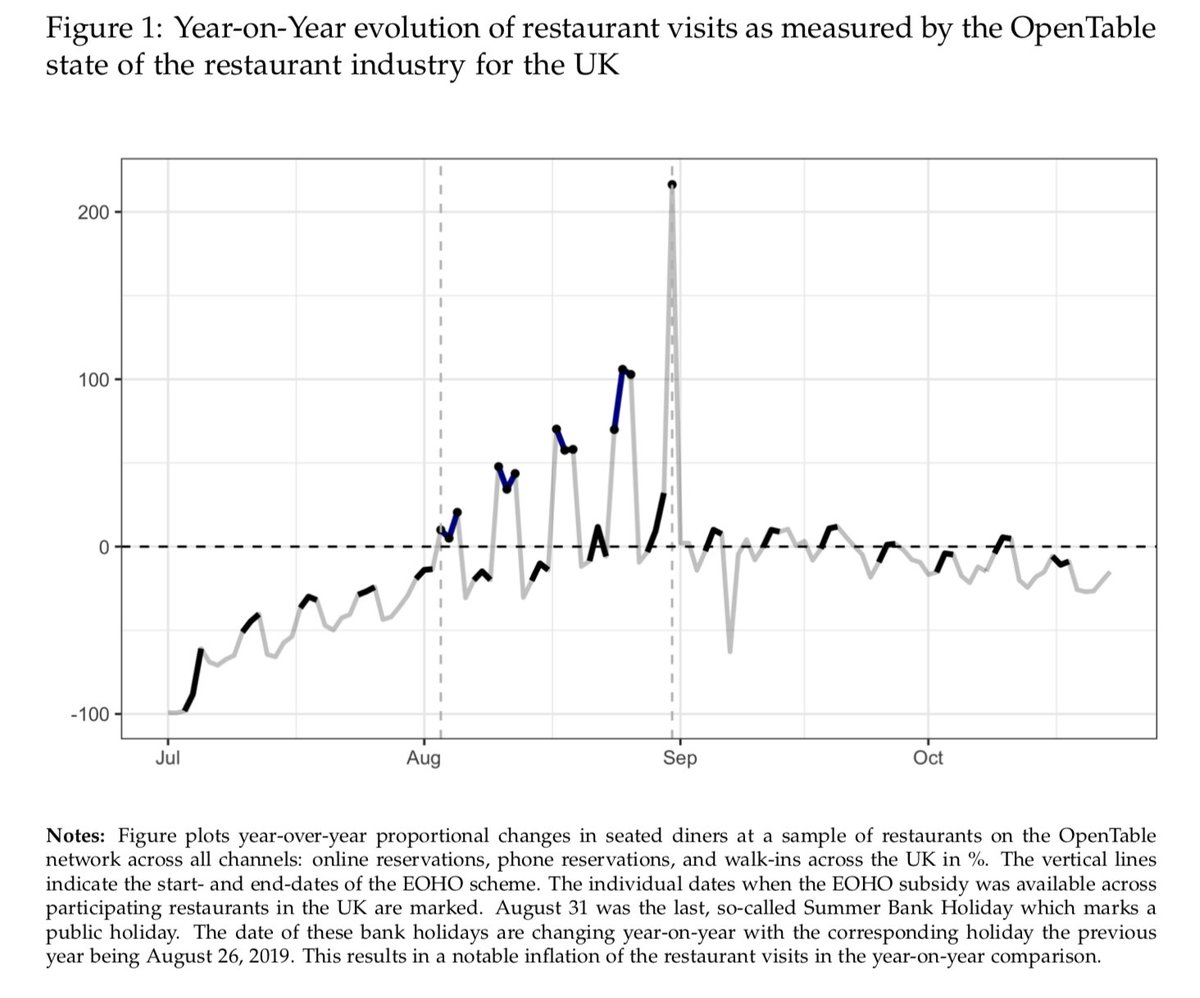
To establish & quantify the link btw #EOHO & #COVID19 infections I do two exercises: I use a DID design showing that in areas with notable uptake of #EOHO #COVID19 infections surged differentially one week after the scheme started & declined again a week after the scheme ends 4.. 
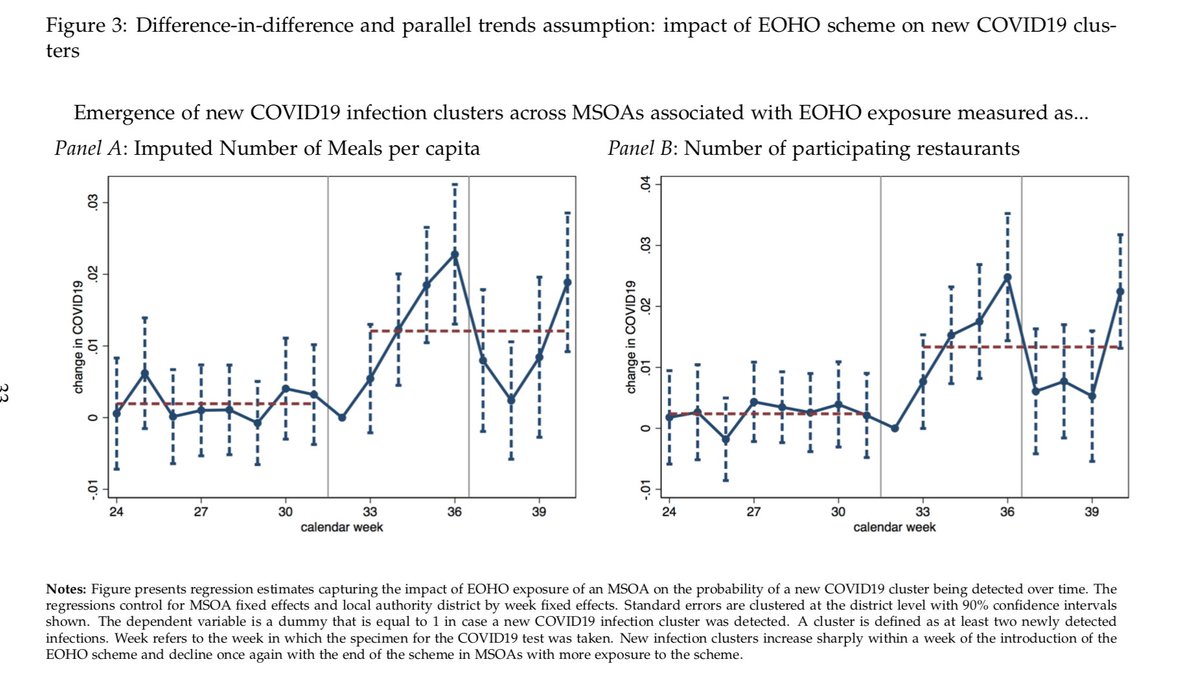
This maps closely patterns of restaurant visits which increased through Mon-Wed in August & then declined again from early Sept. The DID estimates suggest between 8-17% of all detected #COVID19 infections were due to the #EOHO scheme seeding the 2nd wave across the country. 5...
To further nail causality I exploit the vagaries of the English weather. August saw 150% more rain than usual that wasnt evenly distributed in time/space. Areas where it rained during lunch/ dinner hours on #EOHO days saw less restaurant visits as measured using Google data. 6.. 

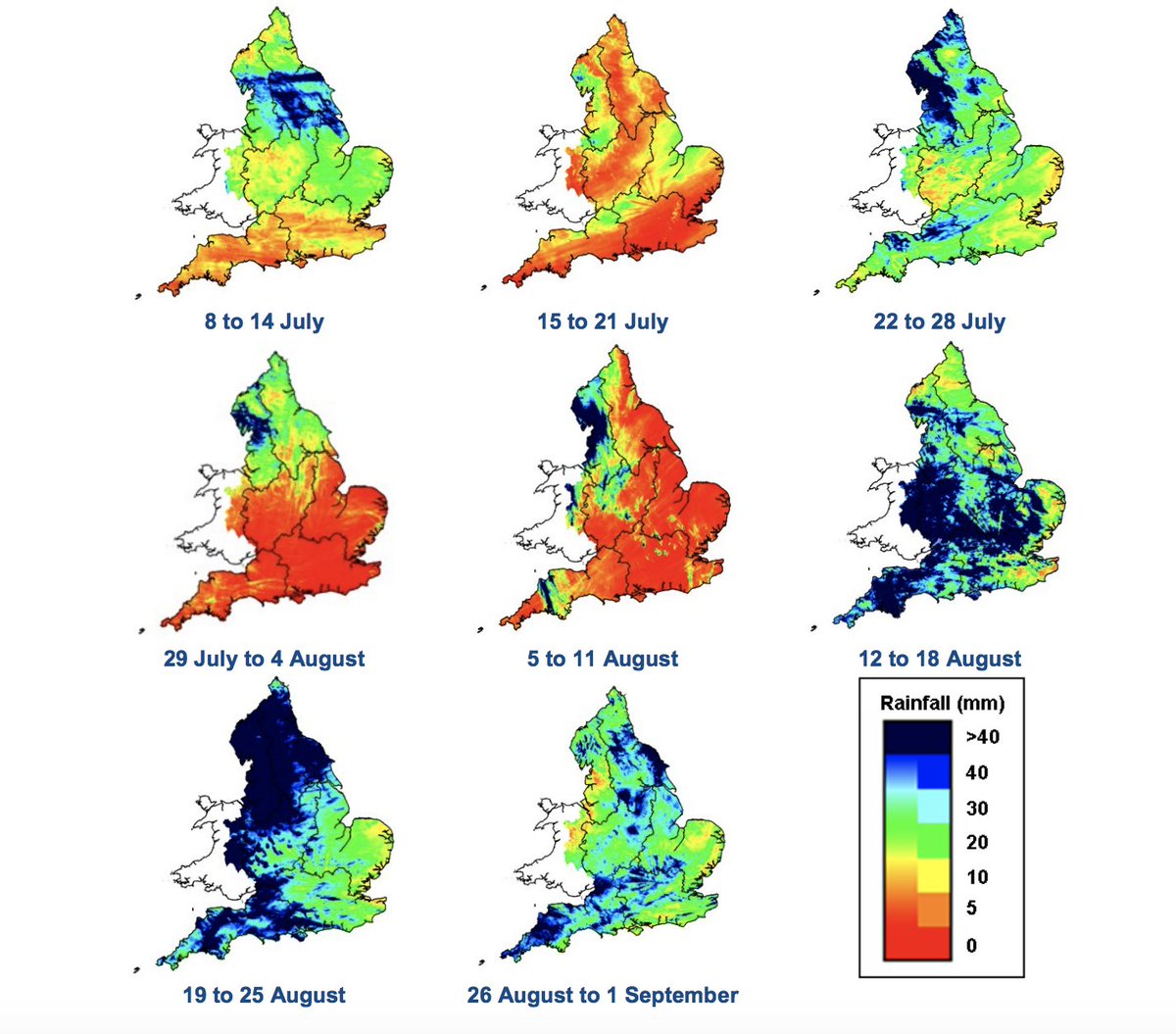
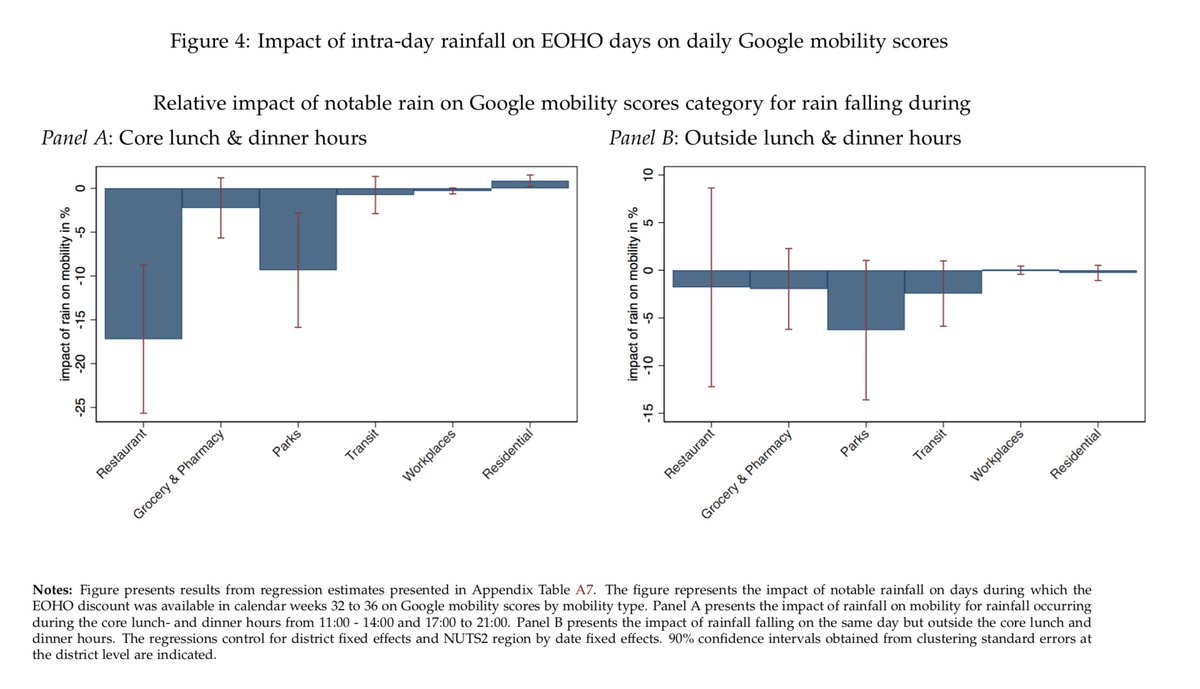
And guess what predicts infections? Areas that saw notable lunch/dinner time rainfall see notably lower infections later in the week. But only during the EOHO weeks. There are some nice placebos as the effects are only there during the #EOHO August window 7... 
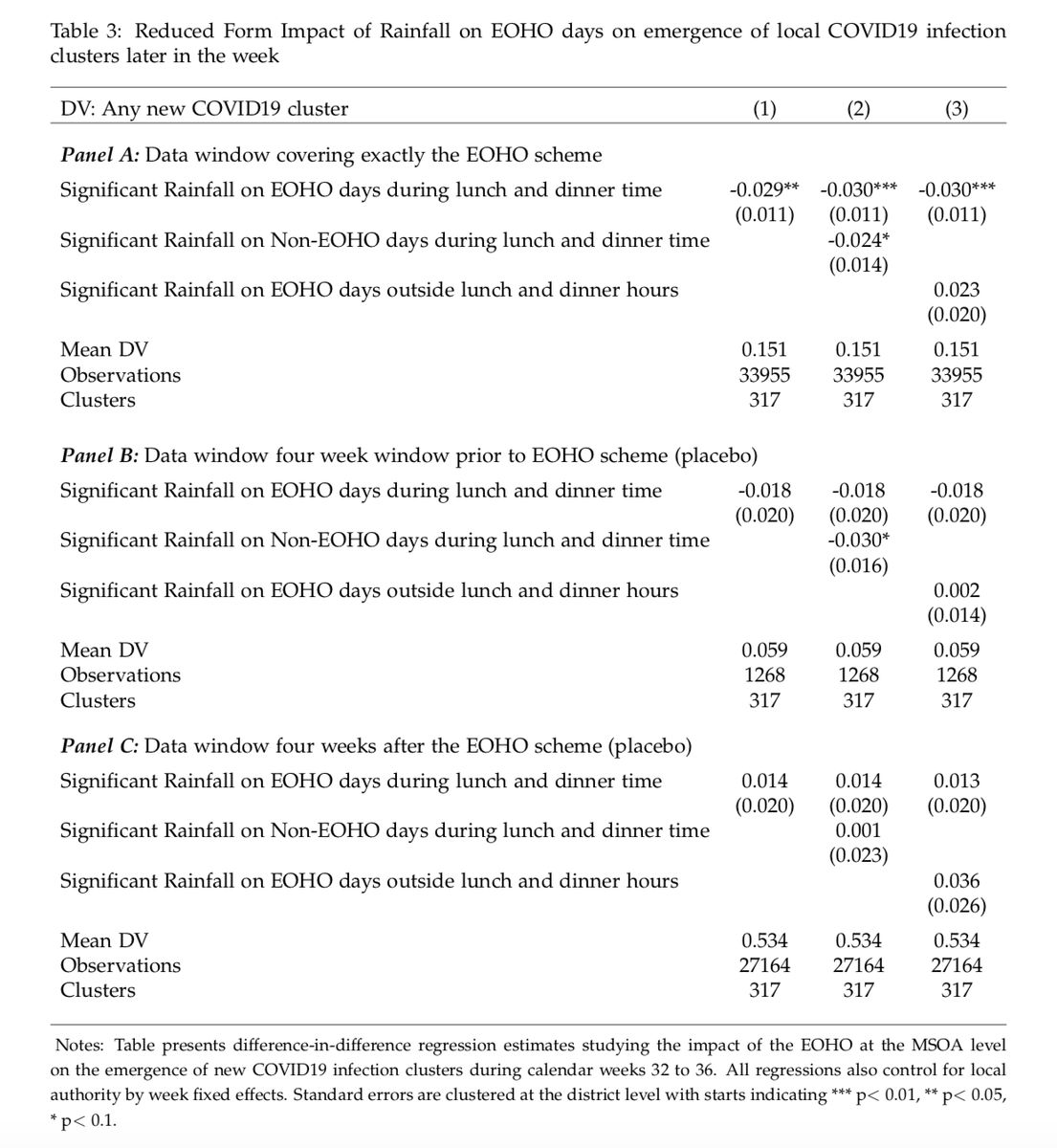
The paper does quite a bit more. But just let that sink in: the govt used around GBP 500 in taxpayers money temporarily boosting restaurant revenues, but also causing notable new #COVID19 infections. This certainly accelerated the 2nd pandemic wave we currently are in... 8...
which has already lead to consumers staying home not eating out for fear of catching #COVID19 (the pandemic is the ultimate cause of economic harm). This, to put it mildly, was a poor use of taxpayer money especially in light of the free school meal discussion @MarcusRashford 9..
The paper does a fair bit more... please have a read bit.ly/3ed5Slo and share widely.
@gwcollinge @davidallengreen @anandMenon1 @annettedittert @ImranRasul3 @orianabandiera
@gwcollinge @davidallengreen @anandMenon1 @annettedittert @ImranRasul3 @orianabandiera
also interesting for @sjwrenlewis @simonjhix @Femi_Sorry @t0nyyates @InstituteGC @Keir_Starmer @RoyalEconSoc @royalsociety @SiobhanBenita @bornecon @ben_moll @XJaravel
• • •
Missing some Tweet in this thread? You can try to
force a refresh


